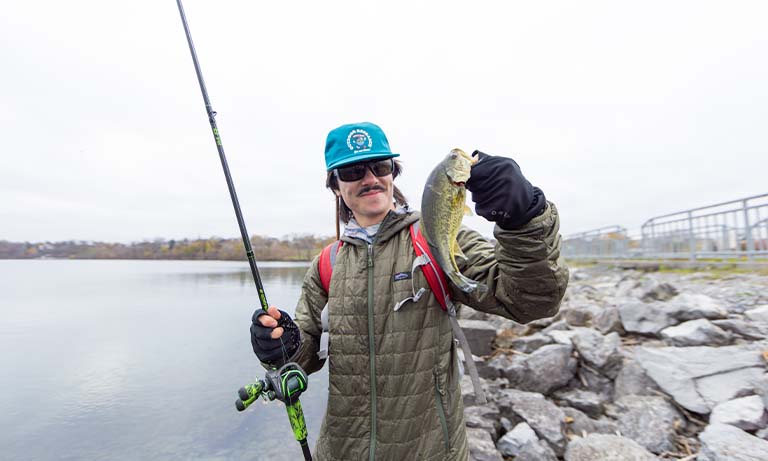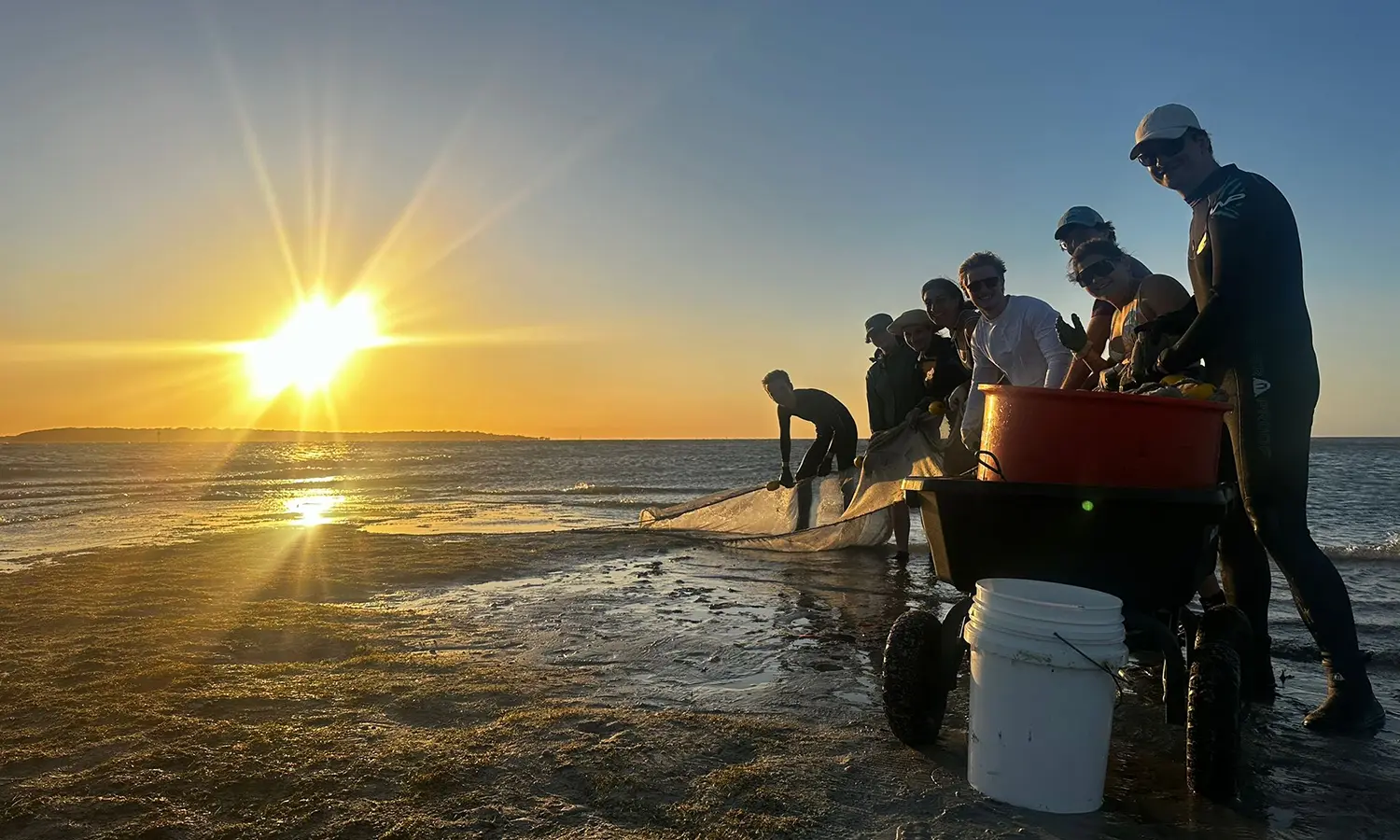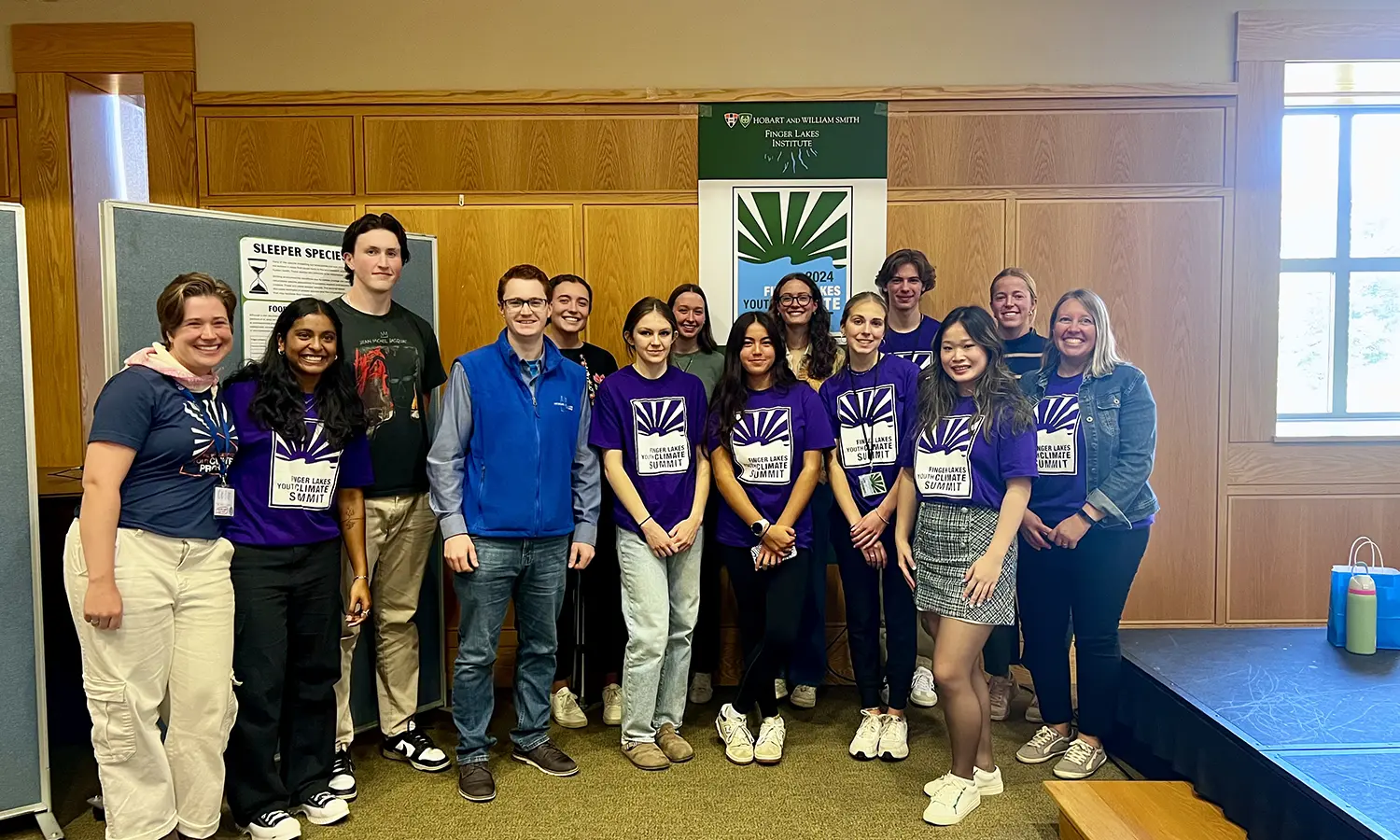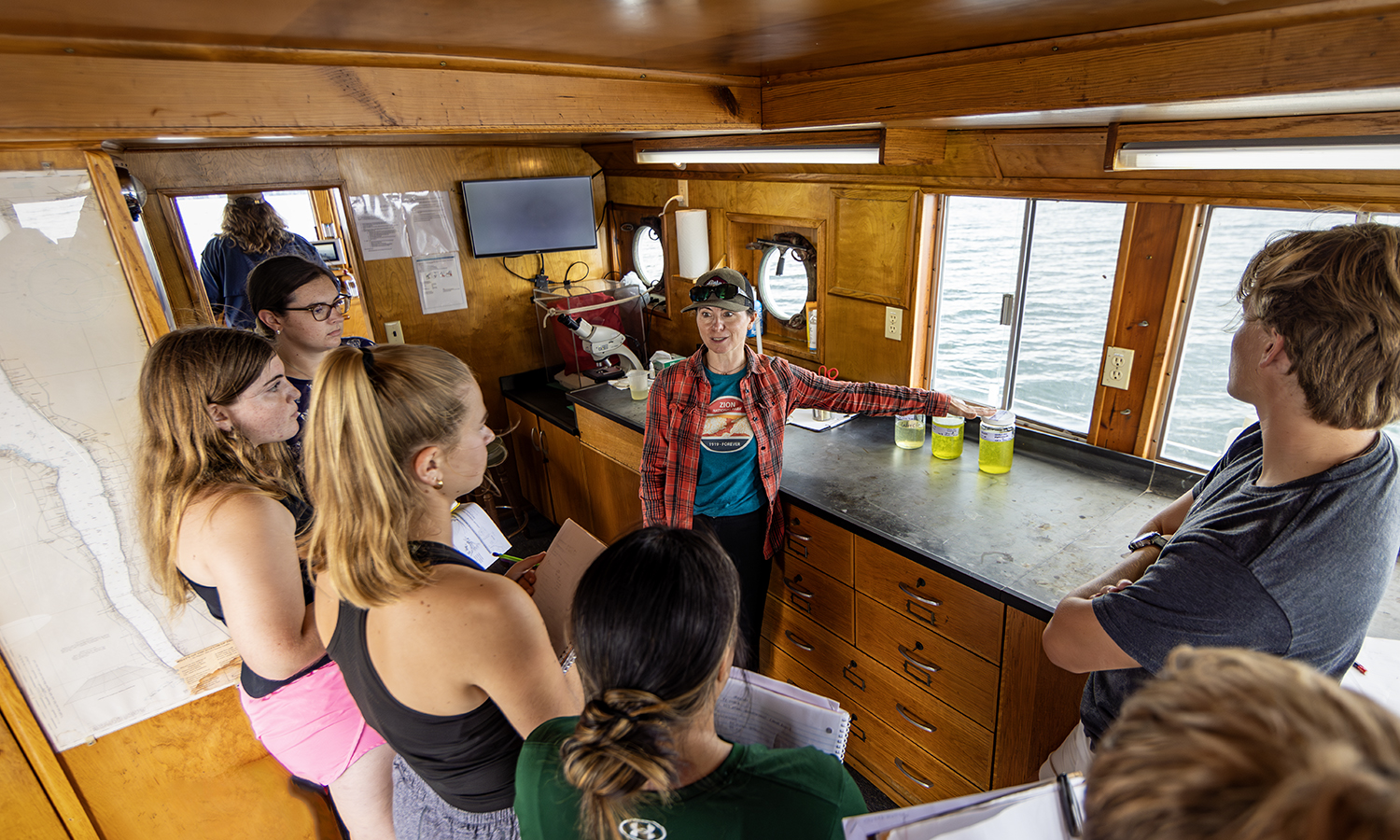
HWS News
5 April 2024 • Research • STEM Animal Behavior During the Eclipse
During the total solar eclipse on April 8, HWS faculty and students will be studying how the change in light impacts animals on land and in the water.
As the moon passes between the Sun and the Earth, casting a shadow on the planet, a unique opportunity arises to observe how animals react to the sudden darkness of a total solar eclipse.
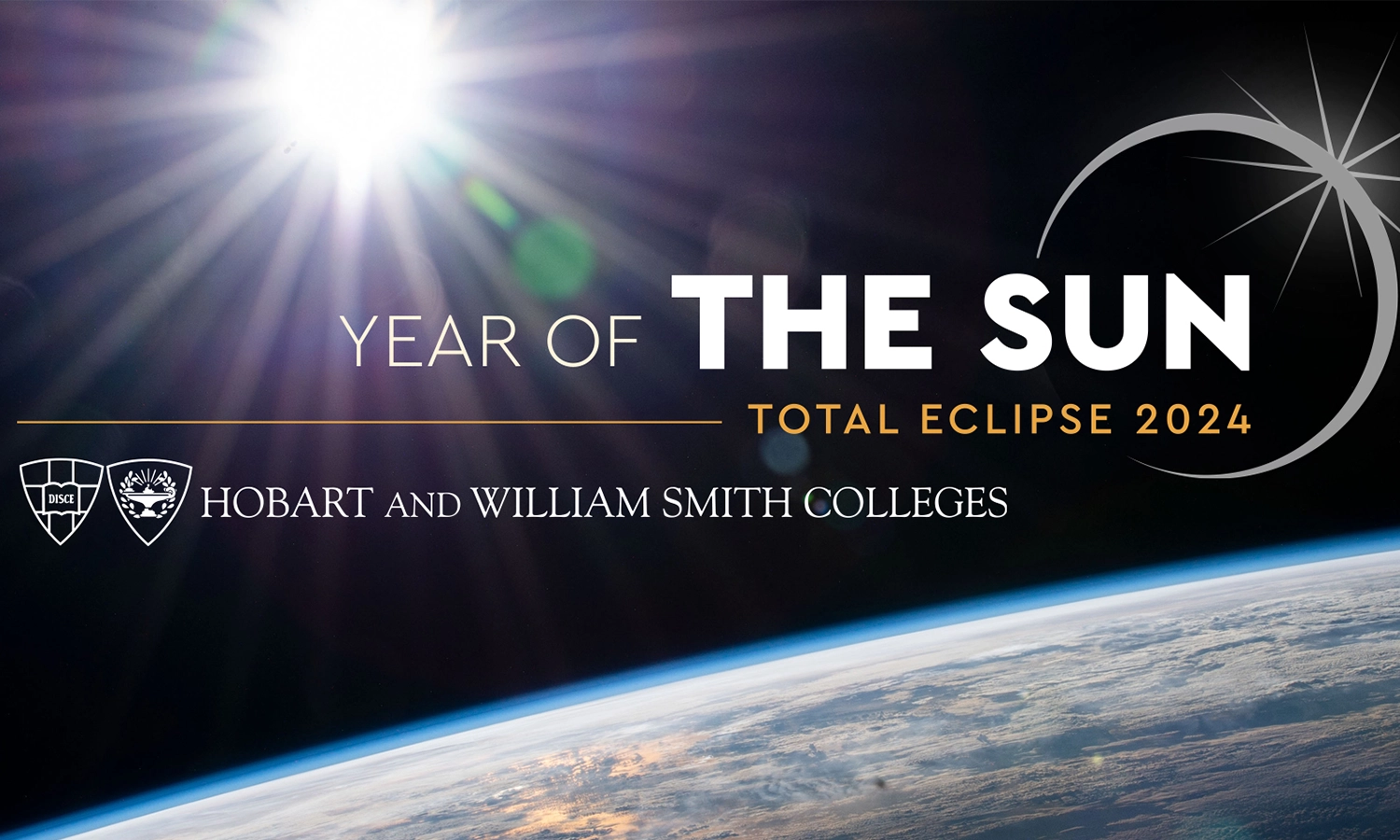
Aided by student researchers, Professor of Biology Meghan Brown and Associate Professor of Physics Leslie Hebb are each coordinating experiments to explore how animals perceive and adapt to sudden changes in their environment during this rare celestial event.
Aboard the HWS research vessel, the William Scandling, Brown and students will collect samples from Seneca Lake to better understand how sunlight — or its absence — impacts the daily migrations of zooplankton that feed on algae in the surface waters.
Associate Professor of Physics Leslie Hebb teaches class in Coxe Hall. 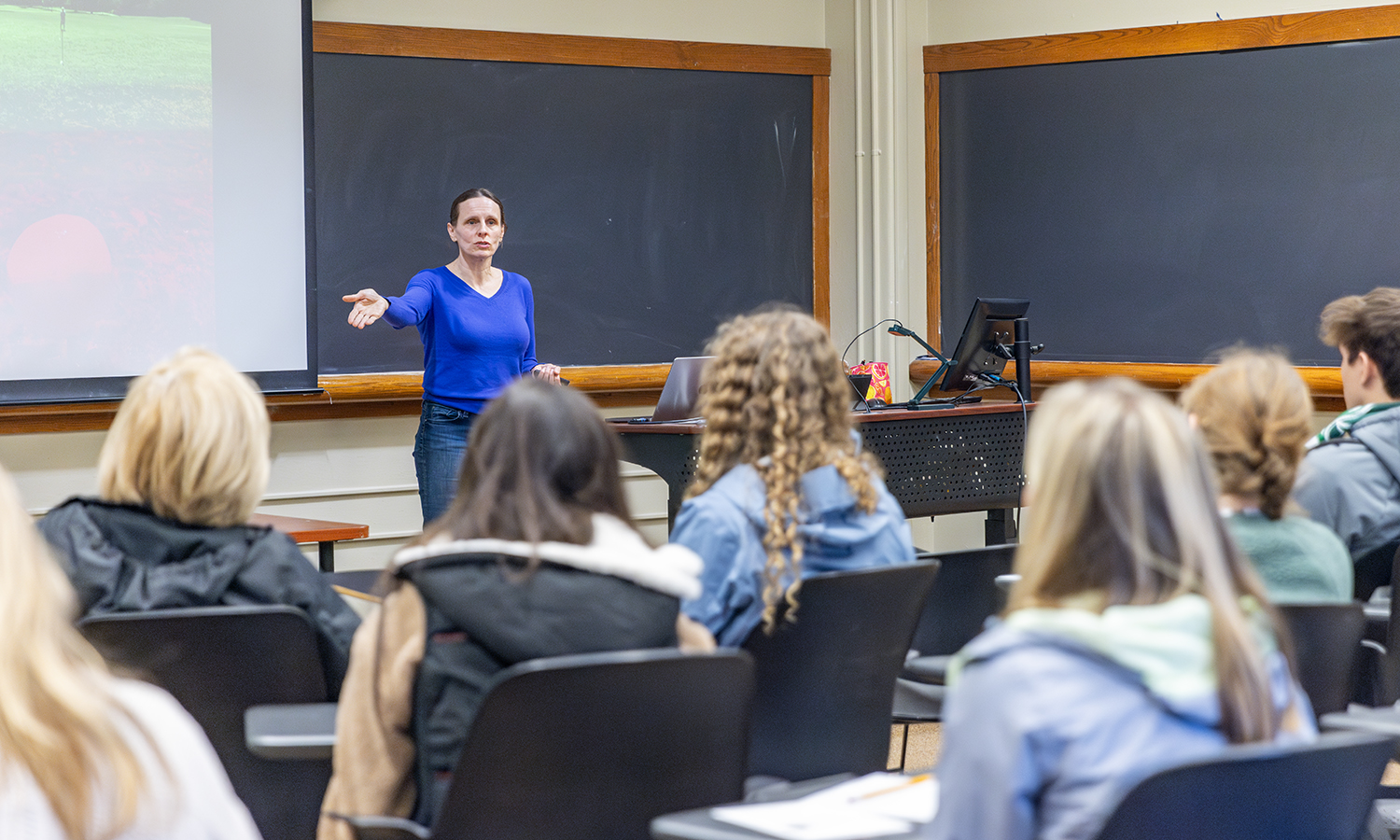
Brown expects a similar migration during the eclipse, which begins mid-afternoon, but “the question is how far and for how long.”
Using nets deployed at different depths, she and students will collect samples from the lake over the course of several hours before, during and after the eclipse.
“We’ll be able to know specific quantities of organisms at each depth but also which organisms are at which depth, because you might find that some organisms respond to the eclipse and others do not,” Brown says.
The following week, her “Invasion Biology” course will replicate the experiment when there is no eclipse to see how non-native species in Seneca Lake have responded as they emerge from their winter dormancy.
Meanwhile, Hebb is overseeing HWS’ participation in a NASA Citizen Science Project, “Eclipse Soundscapes,” studying how eclipses affect life on Earth.
“We are participating as ‘Data Collectors’ that deploy listening devices in nature for five days around the eclipse,” says Hebb, who organized HWS’ Year of the Sun programming leading up to the 2024 eclipse.
Hebb is collaborating with Geneva High School’s Green Club and with Jonah Friedman ’26 and the HWS Fishing Club, who will deploy devices in the Geneva area some time before Saturday, April 6 to capture audio leading up to and following the eclipse. After collecting the recording, they will send it along with its location data to the Eclipse Soundscapes team for analysis.
As the Eclipse Soundscape website explains, the project takes its cues from “one of the earliest recorded examples of eclipse-related participatory science…a study by William M. Wheeler and a team of collaborators in 1935.… The study compiled 498 personal observations from game wardens, naturalists, and members of the general public.”
With the help of citizen observers, the project plans to collect and analyze “an unprecedented amount of soundscape data,” advancing “soundscape ecology and scientific exploration.”
In the photo above, Professor of Biology Meghan Brown speaks to students about the different organisms found within water samples taken from Seneca Lake aboard the William Scandling research vessel.

